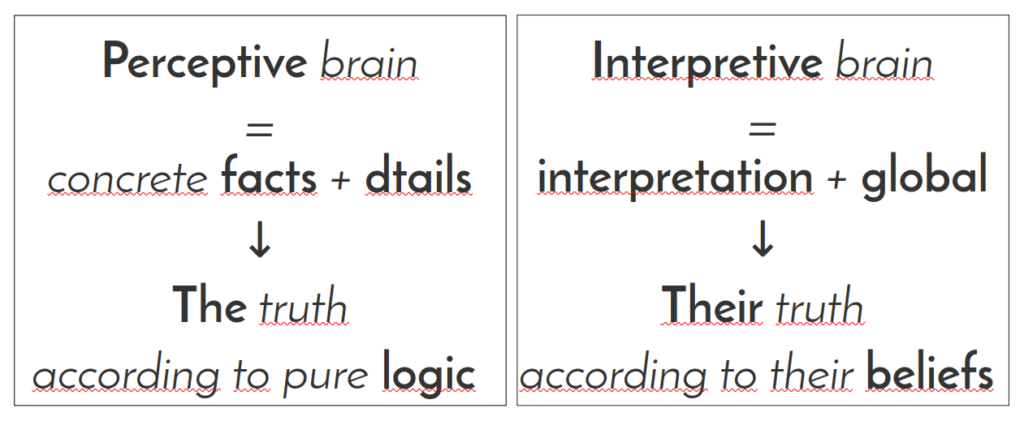Many people believe that autism is a disorder or a deficit, not to mention those who still think it is a mental illness. For me, autism is a neurodevelopmental condition with many advantages — if only the world would allow us to express ourselves and thrive.
Persistent deficits
in communication
and social interactions
+
Restricted and repetitive
nature of behaviors,
interests, or activities
Many autistic people feel completely normal when they are only among other autistic individuals. The communication challenges arise solely between autistic and non-autistic (allistic) people because they have two different ways of perceiving the world. And neither perspective is better than the other—though I personally prefer the autistic one… The real issue is that minority voices are rarely heard, let alone truly listened to.
They talk about restricted interests—or “specific interests” to be more politically correct. We call them passions, which we may pursue more intensely than allistic people due to our perseverance and strong memory.
As for repetitive behaviors or activities, they simply help us manage the anxiety caused by a world that doesn’t move at our pace and, more importantly, doesn’t make sense to us.
As for intellectual impairment, who? Who can objectively measure a person’s intellectual capacity when they may simply not have acquired a conventional means of communication (such as speech) or have not received the right education to fully develop their potential?
The Autism of Autistic People
According to my research*, autism is the combination of a hyper-perceptive brain and internal collapse.
Perceptive Brain vs. Interpretative Brain

Internal Collapse
Self-awareness ↓ – Processing time ↑
→ Motor skills ↓
→ Mentalization ↓
Interoception + Emotion Identification ↓
→ Perception of internal sensations ↓
→ Verbalization of emotions ↓
→ Attention difficulties + Hyperactivity
* St-Charles Bernier, C., Tremblay, I., St-Charles, L. & Harrisson, B. (2022). L’autisme vu comme trouble neurodéveloppemental de la conscience selon l’hypothèse du Fonctionnement interne de la structure de pensée autistique (FISPA). Neuropsychiatrie de l’enfance et de l’adolescence, 70, 5, 229-234. Milton, D. E. M. (2012). On the ontological status of autism : the ‘double empathy problem’. Disability & society, 27(6), 883-887.
A perceptive brain, especially in this society, manifests as difficulty managing inconsistencies, potentially leading to crises of meaninglessness, a need for clear instructions without double meanings or interpretations (→ concrete facts), and a sense of disconnection from others.
Added to this are the consequences of internal collapse, which, in my view, are found in interpretative individuals under the label of ADHD (Attention Deficit Hyperactivity Disorder): attention difficulties, physical and mental hyperactivity/impulsivity, leading to struggles with organization and a tendency toward control (even if they don’t always succeed), difficulty taking initiative, and challenges in emotional regulation, possibly resulting in emotional outbursts.
And if society accepted us and took the time to understand us instead of trying to change us, it would gain so much. Due to their unique perspective on the world, autistic individuals can offer innovative insights—many have already contributed to major discoveries. Have you figured it out? Here’s a hint: think multimedia!
